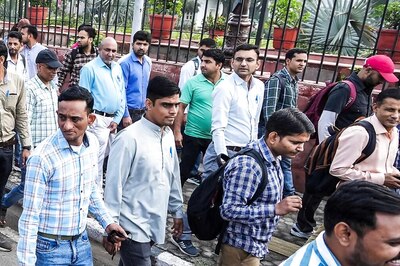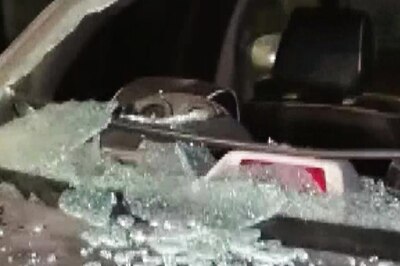
views
Hyderabad: Following the Supreme Court's directions, the Central Bureau of Investigation (CBI) on Tuesday began its probe into the killings of Maoist leader Azad and journalist Hemchandra Pandey in an alleged staged shootout in Andhra Pradesh last year.
Five days after registering a case against policemen involved in the incident, a CBI team visited the forests in Adilabad district where Azad and Pandey were gunned down on July 1-2, 2010.
The team led by chief investigation officer H Venkatesh visited Sarkepalli forests in Wankidi mandal of Adilabad district and inspected the shootout site. The team also spoke to people from the nearby Lakshmipur village to gather details.
The area was cordoned off during the visit. The investigation team is also likely to question the policemen involved as part of its probe into the incident.
The premier investigation agency on May 20 registered a case against the policemen. Asifabad circle inspector Raghunandan Rao, Thandur police station sub-inspector K. Ravinder, sub-inspector in the Armed Reserve Police headquarters at Bellampally D. Mohan, civil and armed reserve special party police officers and others were booked for criminal conspiracy and murder.
This followed the Supreme Court's directions on writ petitions of social activist Swami Agnivesh and Pandey's widow Bineeta. Alleging that the encounter was fake, the petitioners sought a judicial probe.
Police had claimed that Communist Party of India-Maoist (CPI-Maoist) central committee member and spokesperson Cherukuri Rajkumar alias Azad was killed in an exchange of fire in the Adilabad forests on the intervening night of July 1-2, 2010.
Pandey, who was accompanying Azad, was also killed. Police had also branded Pandey as a Maoist.
Human rights groups alleged that Azad was killed in a staged shootout by the police even as he was working to create an atmosphere conducive to talks with the central government. They claimed that police arrested Azad along with Pandey in Nagpur, Maharashtra, brought them to Adilabad forests and murdered them in cold blood.
The Supreme Court during the hearing had expressed displeasure over the incident and had remarked, "we cannot allow the republic killing its own children".



















Comments
0 comment